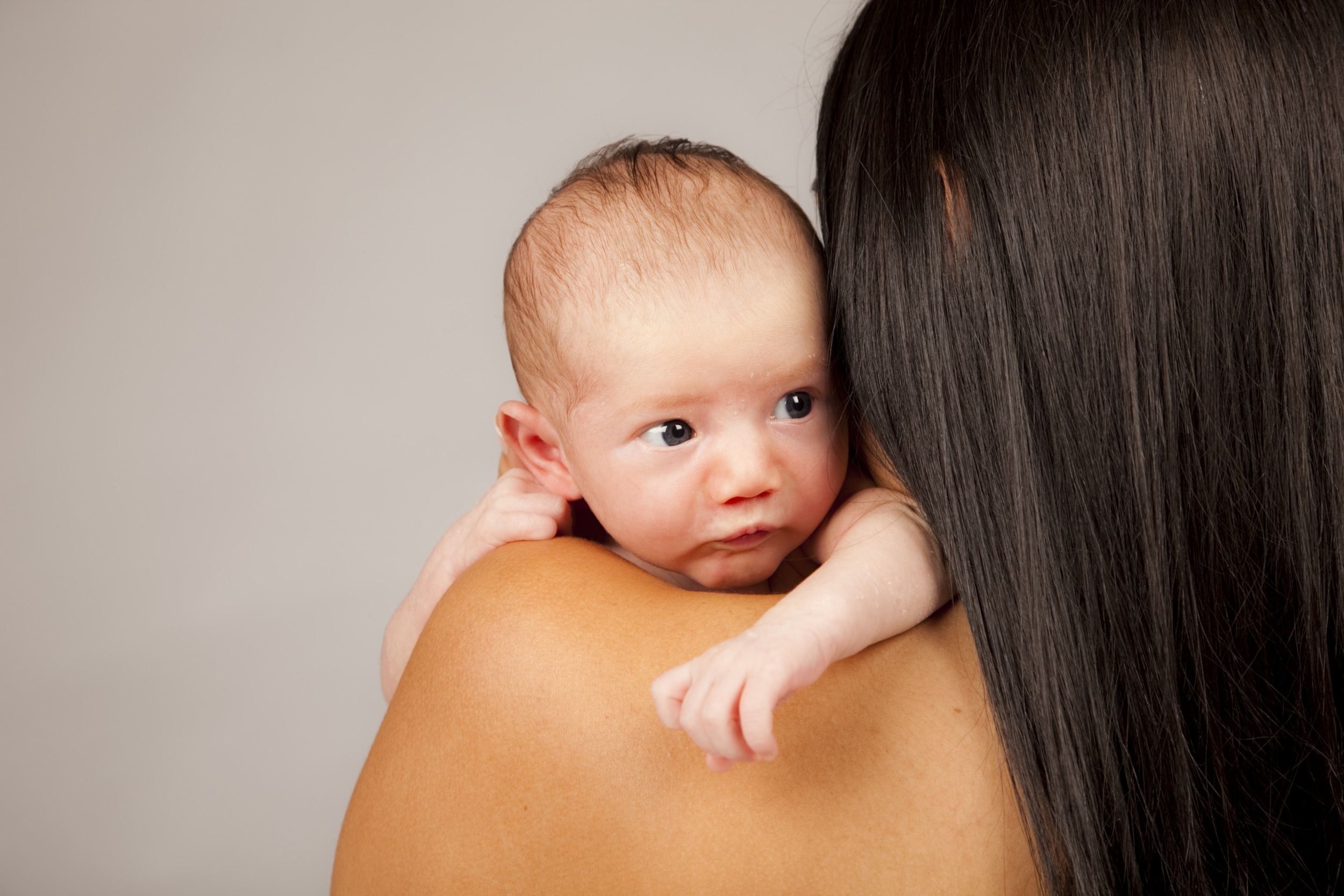Inspiration and technology: Alison Baum blending the two!
/I have been observing Alison Baum's phenomenal achievements for many years, and have been captivated by her passion, energy and charisma. Alison is the CEO of the charity Best Beginnings, and there's more about the brilliant work the organisation does in this post. After becoming increasingly involved in Alison's latest project, the Baby Buddy App I wanted to interview her, to find out a little more about the inspiration behind her successes. In particular, I wanted to know more about this app, and why she was driven to make it happen!
Alison, Hi! Can you tell me what the Baby Buddy phone app is?
Baby Buddy is a personal baby expert that guides mums through their pregnancy and the first six months of their baby’s life. It has been designed to help mums give their baby the best start in life and support their health and wellbeing. The app is free to download, and it allows you to create your own personalised avatar (your “Buddy”) and has lots of lovely features, including useful “daily information”, some great videos, a cool goal setting function called “You can do it,” a “What does it mean” feature where you can find out what words means, and a very helpful “Appointments” feature. Baby Buddy focuses on empowering young mothers, as well as increasing their knowledge, improving confidence, enhancing bonding and attachment and reinforcing the importance of accessing health services.
What is the inspiration behind the creation of the app?
Our charity Best Beginnings is all about ending child health inequalities in the UK. This means giving every baby the best possible start in life. Our vision is a future in which all children in the UK enjoy excellent care from the very beginning. My own personal experience has been a major influence on what we are trying to achieve. My first son David was born with a cleft palate as well as breathing and feeding problems. My second son Joshua was also born with a cleft palate and developed viral meningitis at 8 days old. My nephew Joe has a condition called Tuberous Sclerosis, he has multiple and complex healthcare needs, including severe learning difficulties, autism and epilepsy. Sometimes things go wrong, and some health problems are unavoidable, and we all do what we can to make the best of a situation. But as I became more and more aware of the shocking child health inequalities that exist in the UK, I realised some things are avoidable. For example, it’s totally unacceptable that a baby born in Bradford is six times more likely to die in infancy than a baby born in Tunbridge Wells. For the most part these inequalities are avoidable and that is what I decided to focus my energies on. Best Beginnings was set up in 2006 and the Baby Buddy app is an important part of that vision as it is designed to support parents-to-be and new parents in the social, emotional and physical transition to parenthood, and in giving their baby the best start in life. Baby Buddy focuses particularly on engaging young parents, who based on the evidence, are more likely to find the transition to parenthood harder and their babies are more likely to have poorer health outcomes. We as a society have failed to give them information in a way that works for them. Young parents want to give their babies the best possible start and we’ve created this app as a way to help them do just that.
How is it different to all those other parenting apps on the market?
Some apps are offered at a cost but Baby Buddy is free to all. Another important thing is it contains content that can be trusted. Everything in the app has been approved and endorsed by organisations including the Royal College of Midwives and the Royal College of Paediatrics and Child Health. Pregnancy or parenting apps give daily information based on the mother’s pregnancy stage or the baby’s age. No other app straddles pregnancy and birth with content which covers the emotional as well as the physical, which mentions the mother, baby and partner by name which is different content whether or not the mother has a partner and/or is or isn’t breastfeeding, all of which has been endorsed by many key maternal and child health organisations. This means the user gets the right information at the right time. We’ve had a huge amount of input from parents and professionals too. Through this, and with a clear vision of what is possible, we’ve created something that has never been done before. Baby Buddy is unique in its combination of endorsed content, friendly chatty style, its practical and interactive features, and in the ways it is being used. Baby Buddy has also been designed to be used as a tool by healthcare professionals to both support and complement their work. We have been working with local areas to actively embed the app into care pathways.
Is it easy to use?
Yes, installing the app on to your phone could not be easier and only takes a few minutes. Anyone can access it – mums or dads, health or social care professionals, peer supporters and other charity workers – as long as you have either an Android phone – in which case visit this, or an iPhone – in which case visit this link. Everyone who registers gets access to all the app's features. We ask that people please register as who they really are not as who they are imagining being. We are (as an anonymised dataset) keeping track of who is using Baby Buddy, where in the country users are and (if they complete the in-app questionnaires at 7 and 8 weeks) what they think of it. For example, we are keen to see how many midwives, health-visitors, paediatricians, obstetricians, psychologists etc are using it in different parts of the country. So, tempting as it may be to go in as a 19 year old pregnant woman when you are an interested professional, please register with your real age and profession. Once you are registered you'll end up having exactly the same experience as the 19 year old pregnant women you have in mind when testing the app. The in-app data will help us get the app ever better. We've only released the 1.0 version and this will be a multi-year project informed by in-app and site-based evaluations. Our web page has it all spelled out here. The app itself is very visual, and uses lots of images and video clips. Many mums who have been giving us feedback tell us how much fun it is to use the avatar, which can be customised. There are well over a million different avatar Buddies you can create, each with their unique combination of body shape, skin tone, eye shape and colour, nose, lip shape and colour, outfit and hairstyle, and if the user chooses, virtual earrings, necklace and sunglasses.
Why do mothers need an app when we have so much information on the web available?
Very few young parents with babies are far from their smart phones these days and it makes sense to deliver key messages and support to them in this way. Mums have been telling us that, frankly, they are overwhelmed by the amount of information out there and searching the web for an answer is a minefield when you don’t know if the source can be trusted or not. Baby Buddy has a fantastic Ask Me function that gives them answers to all their questions on pregnancy, birth and parenting, as well as a “what does it mean?” feature. But Baby Buddy does more than give information, it is also highly interactive. This means as well as sending regular messages with timely reminders, daily alerts and video advice, it also enables the parent to set goals, manage health appointments and find local groups and resources via a map. A phone app is a great way to reach out to younger mums, who as a group are among the highest users of smartphones. Younger mums may not always be accessing health services in the same way as older mums, so it provides a way to connect them to a resource that maintains regular contact and alerts.
When will it be ready to install on my phone?
Right now! Version 1.0 is available to install. Visit the web page now to install it. I would actively encourage everyone to download and use it. We are seeking feedback from parents and health and social care professionals ahead of the official launch in mid-November 2014 to make the app even better. When you install it you’ll be asked to give feedback in the app and you can also email us directly. We are particularly keen for multi-disciplinary healthcare professionals to understand its functionality and content, so they can recommend it to the families they support, and use it in appointments. When you register as a user, just choose the options that fit you best. This way we can separate out feedback from parents and professionals. I really would be delighted to hear any suggestions anyone has for additional content for example new FAQs for the “Ask me” function via: hpapps@bestbeginnings.org.uk. Midwives may even want to rate it and write a review of it on Google Play or iTunes App Store. The more reviews there are for parents-to-be and new parents looking for help, the easier it is for them to decide if Baby Buddy is worth downloading. So if you’re readers, (after using the Baby Buddy app), want to take a few minutes to write a review that would be wonderful.
How are parents going to hear about the app?
Well, there are lots of ways and your readers can play a big part in this, if they wish!
1. Special posters and postcards are available to display in areas where pregnant and new mums visit, and they can be downloaded or ordered free of charge here! Some areas are putting the leaflets in pregnancy booking appointment letters and other maternity services are working with us to develop ideas on integrating the app into local maternity and children's care pathways.
2. We have a social media campaign building on Twitter using @babybuddyapp @BestBeginnings and @AlisonBaum and we are very keen for you to get involved. We are a growing 'family' and would love you to be part of it! See the video below...
3. We are planning a press launch on November 19th 2014 - so please do join in the Twitter and Facebook chat, and let us know if you would like your local area to be part of the press launch. Email us at hpapps@bestbeginnings.org.uk
Is the app complete?
No not at all, we are very much at the beginning of a multi-year journey.
We have an abundance of helpful content in the app, but we are constantly looking for more Questions and Answers for the "Ask Me" function and I am always keen for suggestions, all of which have to be endorsed by our team of experts before inclusion. We are also in the process of making more than 100 new films to go into the app which will include everything from young mothers preparing simple healthy meals, to mums at antenatal classes talking about what they get out of them, films about creating wellbeing plans, creating birth plans, films about active labour, about baby communication, spotting a sick child and much much more. We are actively recruiting young pregnant women and young mothers from across the country who are happy to be filmed during their pregnancy and/or their baby's first months. We are also keen to recruit and film mothers with older children who experienced mild, moderate or severe mental health problems to tell their story retrospectively, with the purpose of raising awareness, destigmatising and informing app users about mental health and wellbeing. For more information please see the dedicated webpage on our website. We'd be delighted to hear from healthcare professionals working with young parents or from parents themselves.
In addition to new content coming on board, we are also adding in new features to Baby Buddy. Within the next few weeks three long-awaited features will go “live”:
Bump Around/Baby Around: this new feature helps users of the Baby Buddy app to find local services and classes based on their locality, using a map. The aim of this feature is to use technology to increase social capital by supporting more young mothers to attend classes and use local services.
Bump Book/Baby Book: this new feature allows users to keep their own private diary with photos, thoughts and reflections. Users can, if they choose, share individual daily entries with friends and family and their wider network). In creating this feature we have created a reflective space within the app to support mind-mindedness and the emotional transition to parenthood. Our aim, in the future, is to create a way for users to easily make a hard-copy version of their Bump or Baby Book if they choose.
Text to voice: that users will be able to tap a button and their Buddy will speak her message to them
Here is a special message from me about how you can play a key role in this project and make a difference to babies' lives in the UK. Thank you!
Here is a special message from me about how you can play a key role in this project and make a difference to babies’ lives in the UK. http://vimeo.com/101627566 Together we can make a difference for future generations. Thank you! PS: If you want to find out more about the dad’s app I mention in my special message click here.


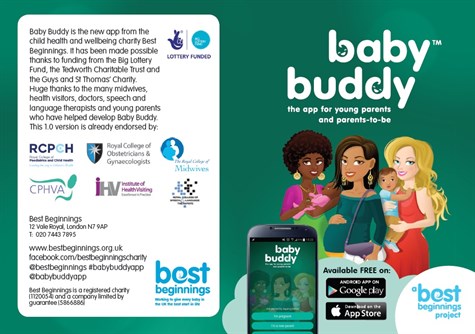
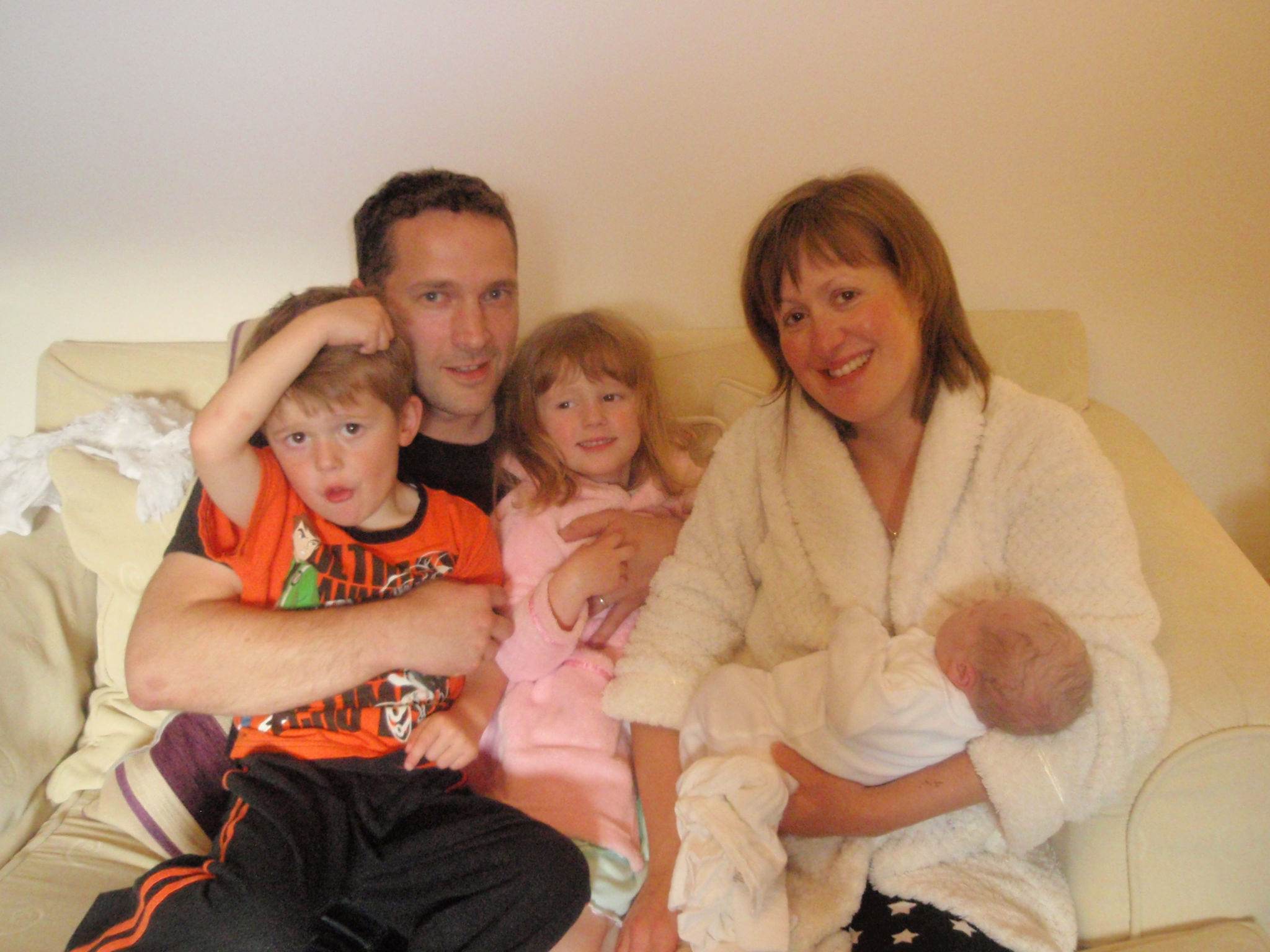

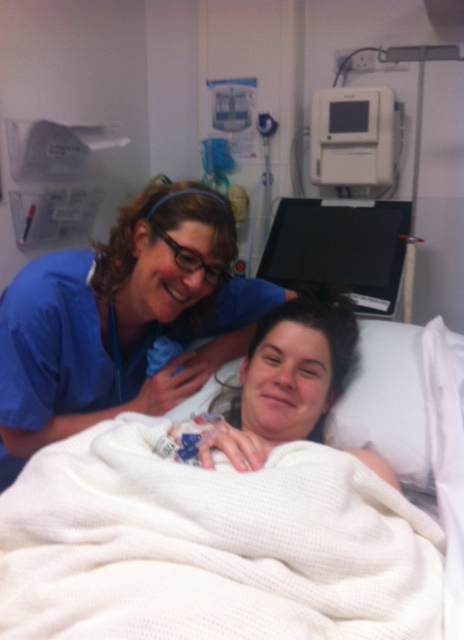


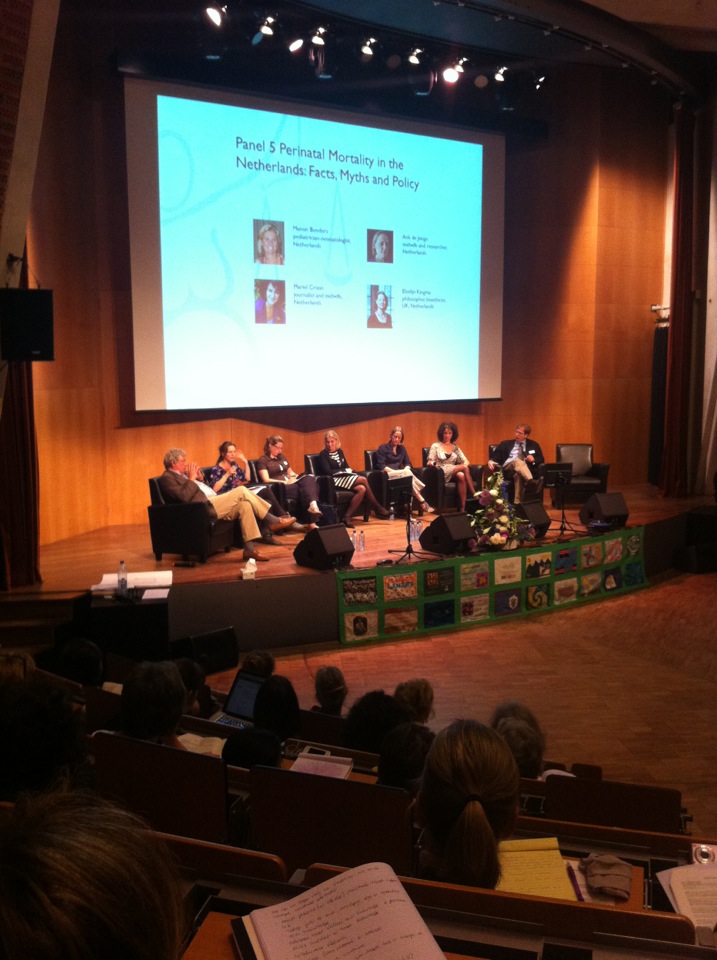 Attending the second day of the
Attending the second day of the 
